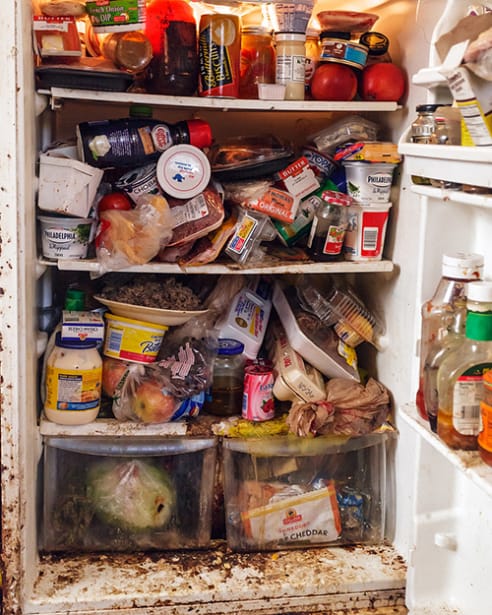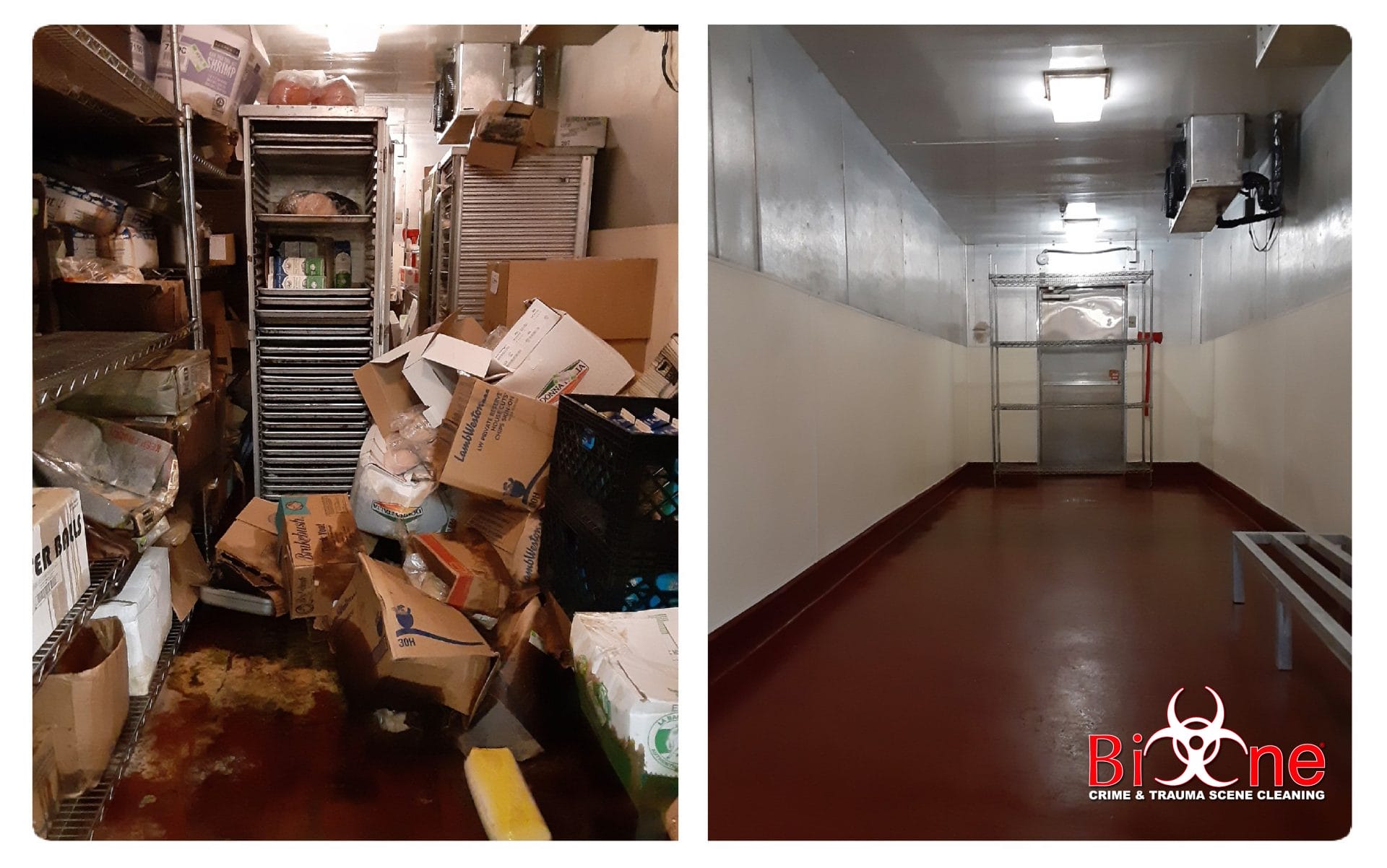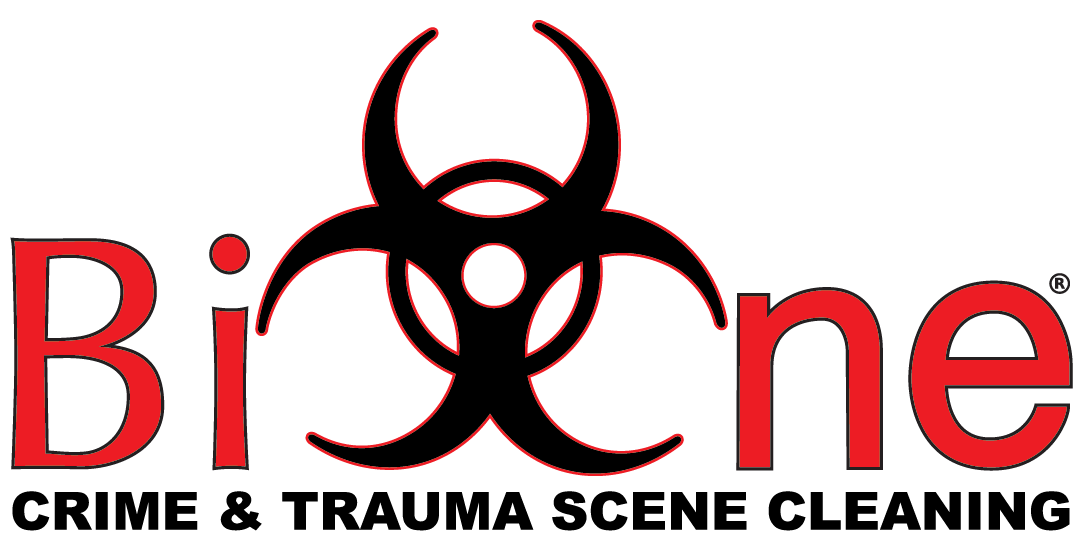Dangers beyond the smell could be lurking in your spoiled fridge
Has your food gone foul?
All of us at one time or another have had the dubious honor of cleaning out a refrigerator or freezer that has had spoiled food leftover from the holidays. But has anyone had the unfortunate experience of coming home from a two-week vacation, only to find your freezer full of meat stopped working the day after you left? We have! Yuck!
The intensity of the smell and the overall safety of handling the rotten or spoiled food will be a by product of a variety of factors that is influencing the decay. Its important to know some of these factors before you tackle the project at hand:

According to the Institute of Agriculture and Natural Resources at the University of Nebraska, there are 8 factors that impact food spoilage:
Microorganisms: Many types of microorganisms can cause food problems. The microorganisms that can cause food-borne illness are called pathogenic microorganisms. microorganisms may grow in foods without any noticeable change in odor, appearance, or taste. Spoilage microorganisms, including some kinds of bacteria, yeasts, and molds, can grow well at temperatures as low as 40°F. When spoilage microorganisms are present, the food usually looks and/or smells awful.
Enzymes: Substances naturally present in food and are responsible for the ripening process in fruits and vegetables. Enzymes are responsible for texture, color, and flavor changes. For example, as a banana turns from green to yellow to brown, not only does the color change, but there is also a change in the fruits texture. Unblanched, frozen corn-on-the-cob may taste like the cob over time. This is the result of enzyme action.
Air: Oxidation, a chemical process that produces undesirable changes in color, flavor and nutrient content, results when air reacts with food components. When fats in foods become rancid, oxidation is responsible. Discoloration of light-colored fruits can be reduced by using an antioxidant, such as ascorbic acid or citric acid, before freezing. Vapor-proof packaging that keeps air out also helps reduce oxidation problems.
Light: Exposure could result in color and vitamin loss. Light also may be responsible for the oxidation of fats.
Insects, Rodents, Parasites and Other Creatures: These creatures require food to survive and damage food, making it more vulnerable to further deterioration.
Physical Damage: Bruises and cracks on raw produce leave areas where microorganisms easily may grow. Improperly packaged foods, dented cans and broken packages provide places for microorganisms, air, light, and creatures to enter. Gentle handling of food items will help maintain food quality and safety longer.
Temperature: Affects storage time, and food deteriorates faster at higher temperatures. Microorganisms, both spoilage and pathogenic, grow rapidly at room temperature. To slow microbial growth, the enzymatic and oxidation processes, store foods at lower temperatures. Recommended temperatures for storage areas are:
· Cupboard/Pantry 50-70°F
· Refrigerator 34-40°F
· Freezer 0°F or below
Time: Microorganisms need time to grow and multiply. Other reactions, such as oxidation and enzyme action, also require time to develop. Purchase reasonable quantities, especially of perishable foods, to help avoid long-term storage.
In severe cases, where spoilage has occurred for several weeks or even months, the decaying food, especially meats will produce very intense smells and fumes that will make it hard to breathe and can even burn your eyes. These smells and fumes could be any combination of chemical reactions happening to the decaying food and meats:
- NH2 (CH2)5 NH2 – Cadaverine – a putrid and toxic chemical produced by decaying meats
- NH2(CH2)4NH2 - Putracine – a putrid chemical produced by decaying meats. When heated produces NOx
- NH3 – Ammonia: Released from decaying meats and food
- NOx – Nitrious Oxide – reacts with ammonia gas also released from decaying meats to produce Nitric Acide text.
Many websites and blogs will instruct you to “hold your nose” or “just breathe through your mouth” while cleaning. While this may work for some situations where the spoiled food is only a few days or weeks old, unless properly equipped, the homeowner may become sick or nauseous from the fumes. In 2009, in a large 300+ business office, an employee tackled this very issue one day, scrubbing away at a very infected and spoiled fridge, only to send 7 of her co-workers to the hospital and another 28 to be treated for nausea and vomiting. Talk about a bad day at the office!
At Bio-One, our estimates are free, and we are happy to consult with you on any issue over the phone or in person at your home or at your business.
If you, your family, or your company have a smelly refrigerator or freezer with rotten or spoiled food, please do not hesitate to call. Our focus is on you and your family’s safety.
Bio-One Temecula & Temecula Hoarding can help!

You can reach us 24/7 at:
www.bioonetemecula.com or www.TemeculaHoarding.com
Bio-One Temecula and Temecula Hoarding are family owned and operated by Jason Falk & Billy Copeland. In addition to Failed Refrigerator & Freezer clean-outs,, we also offer the following services:
- Junk Removal
- Trash-Outs
- Gross Filth Cleanup
- Disinfection
- Animal Hoarding Cleanup
- Hazardous Waste Removal
- Suicide/Homicide
- Odor Removal
- Undiscovered Death
- Feces & Bodily Fluid
- Sewage Backups
- Emergency Vehicles
- Jail Cell Contamination
- Blood Cleanup/Biohazard
- Skunk Odor Remediation
We proudly serve the following areas in Southern California: Banning, Beaumont, Blythe, Canyon Lake, Cathedral City, Coachella, Corona, Desert Hot Springs, East Hemet, Eastvale, Hemet, Indio, Jurupa Valley, La Quinta, Lake Elsinore, Menifee, Moreno Valley, Murrieta, Norco, Palm Desert, Palm Springs, Perris, Rancho Mirage, Riverside, San Jacinto, Temecula, & Wildomar. We also cover all of Riverside County, and extend support into San Bernardino County, Orange County, San Diego County, and Imperial County.
Bio-One Inc. is the world's first crime scene cleaning franchise. Nationally respected and locally owned, Bio-One has earned its reputation through being trusted to handle the Mandalay Bay mass shooting in Las Vegas in 2017, the Pulse nightclub shooting in Florida in 2016, and consulted on the Sandy Hook Elementary School massacre in 2012. In 2019, Bio-One was once again included in the best and most comprehensive franchise ranking list – Entrepreneur Magazine.




